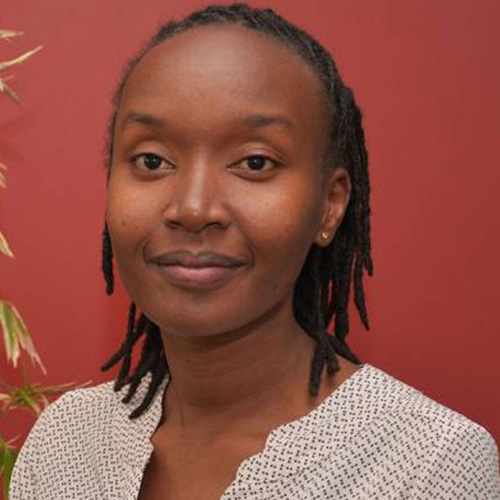
Angela Koech Etyang
Country (Nationality)
Kenya
Grantee Title
Project-Integration of a package of point of care tests into rural primary care facilities to improve access to basic antenatal screening
Grantee Description
Angela Koech Etyang is a physician scientist at the Centre of Excellence in Women and Child Health and an Instructor in the Department of Obstetrics and Gynaecology, Aga Khan University – Nairobi.She is a medical doctor and holds a master’s of medicine (Obstetrics and Gynaecology) degree from the Aga Khan University and an MSc in epidemiology from the London School of Hygiene and Tropical Medicine. She has seven years’ experience in clinical care and over three years’ experience in clinical research in maternal and newborn health. Her research interests are in preeclampsia and the role of infections and inflammation in preterm labour and preterm pre-labour rupture of membranes.
Project-Integration of a package of point of care tests into rural primary care facilities to improve access to basic antenatal screening
Many women in rural Africa visit dispensaries and health centres for care during pregnancy. Despite this, many do not receive recommended screening tests as many of these facilities do not have laboratories. Referring women to off-site laboratories for tests results in delays in testing, starting treatment for women with abnormal results and in some cases women missing tests altogether.
The project aims to make basic screening tests available to pregnant women at dispensaries and health centres that do not have laboratory facilities. These tests screen for conditions such as HIV, syphilis and anaemia. These conditions can be harmful to mother and child but are treatable once detected. We will employ simple existing technologies that enable these tests to be carried out during the clinic visit quickly, easily and by the nurse who is providing the care in pregnancy.We will evaluate whether introducing these tests as a package will integrate well with routine provision of care in these facilities and whether this will result in earlier screening and wider coverage of screening for pregnant women. This is expected to reduce the negative impact of the conditions screened for on pregnancy outcomes.
